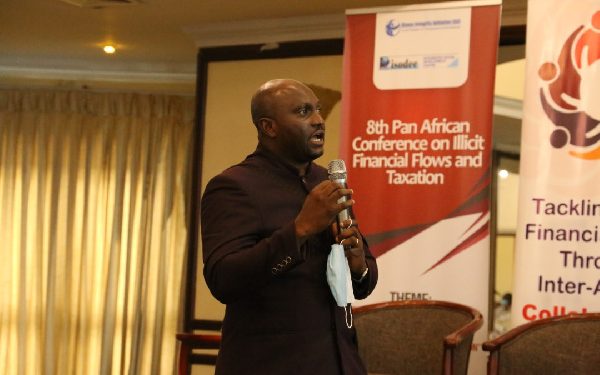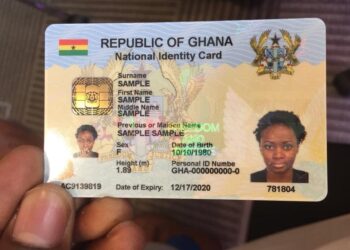The Executive Director for Revenue Mobilisation Africa and a tax expert, Geoffrey Ocansey has revealed that the government needs to expand its tax net to the informal sector to generate revenue and also put strict measures to block all the leakages in the revenue mobilization network, and cancel the nuisance taxes baffling business and Ghanaians.
Mr. Ocansey in an interview on Plan B FM’s late afternoon show EBAANOSEN hosted by Ohene Kinnah in connection with the presentation of the 2024 budget, Mr. Ocansey said the government needs to put mechanisms in place to extend the revenue mobilization to the informal sector to help raise more revenue for development.
“As you are aware carpenters, Masons, Artisans, etc who deal directly with their clients normally don’t pay tax on the money they do so if the government could find ways to educate such individuals on the need to pay tax on their earnings anytime they are paid.”
He also called on the government to take a critical look at leakages in the tax mobilization networks because it is also the cause of low revenue generation.
In the budget statement presented in parliament on 15 November 2023, Finance Minister, Ken Ofori-Atta said the government’s tax policy approach since 2017 was aimed to provide substantial relief to the private sector.
However, due to expenditure pressures from 2020, a more aggressive approach became necessary.
Mr. Ofori-Atta highlighted the importance of improving tax ratios in the short term for fiscal sustainability, stating that the country’s 13 percent tax-to-GDP ratio is below peers, with a target of 18-20%.
Addressing the challenge of implementing immediate structural reforms and tax reliefs, the Finance Minister assured Parliament of the government’s commitment to lower taxes for the industry.
He stated that efforts in collaboration with the Ghana Revenue Authority (GRA) and the Mutual Prosperity Dialogue’s standing committee are underway to achieve this goal.
During the presentation of the government’s 2024 Budget Statement and Economic Policy in Parliament, Mr. Ofori-Atta outlined the prioritized reliefs, underscoring the administration’s dedication to balancing fiscal sustainability with the need for tax reductions in the industrial sector.
Mr. Speaker, further to the above, the following reliefs have been beeprioritizeded for
implementation:
i. Extend zero rate of VAT on locally manufacturedAfricann prints for two
(2) more years;
ii. Waive import duties on the import of electric vehicles for public
transportation for 8 years;
18
iii. Waive import duties on semi-knocked down and completely knocked
down Electric vehicles imported by registered EV assembly companies in
Ghana for 8 years;
iv. Extend zero rate of VAT on locally assembled vehicles for 2 more years;
v. Zero rate VAT on locally produced sanitary pads;
vi. Grant import duty waivers for raw materials for the local manufacture of
sanitary pads;
vii. Grant exemptions on the importation of agricultural machinery
equipment and inputs and medical consumables, raw materials for the
pharmaceutical industry;
viii. A VAT flat rate of 5 percent to replace the 15 percent standard VAT rate
on all commercial properties will be introduced to simplify administration.










Discussion about this post